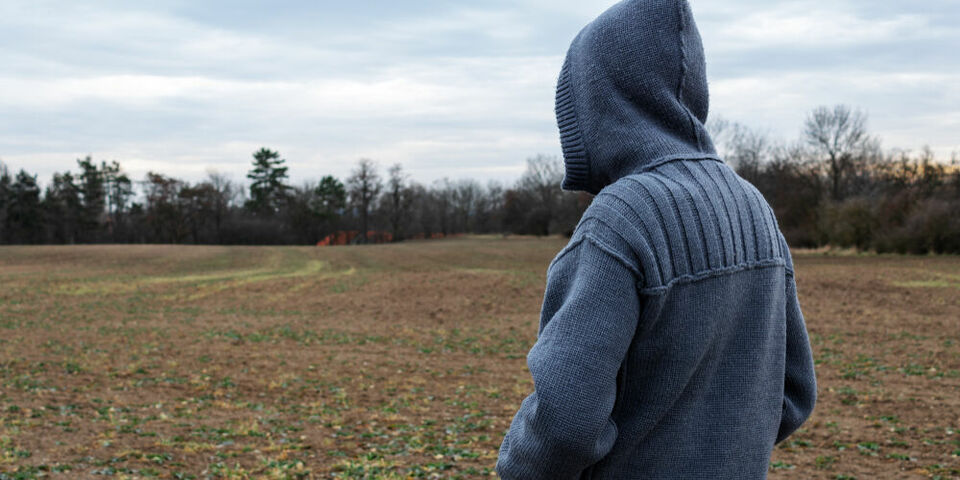The future of Russia: “either isolation or revolution”
Pyotr Smirnov (pseudonym, real name known to the editors) is a postdoctoral researcher from Russia and wants to give people some insight in what it’s like to be Russian now Putin invaded Ukraine. The worries of Russians and Ukrainians are different but sure have common denominators. “Going back to Russia isn’t really an option anymore.”
Main photo is illustrative and not Pyotr Smirnov.
“I just can’t accept this situation of invasion as a reality”, Smirnov starts. “We as Russian people are so close to the Ukrainians, so many mixed families. My family as well is closely connected to the country. I just can’t express how sorry I am about what’s happening to the Ukrainian people.” Cursor used the pseudonym Smirnov as it is too dangerous to use his real name, looking at the critical statements he will make in this article. Smirnov is a postdoctoral researcher at TU/e. “I’m close to finishing my studies and feel uncertain about my future after that. Going back to Russia isn’t really an option anymore.”
Working on his degree is the only distraction for Smirnov at the moment. “I’m just overloaded with information, I try to disconnect now a bit to keep sane. I call my family every day, as long as it remains possible that is. They are trying to limit the internet connection too. We have one website in Russia that gives you access to all kinds of government services. I recently got an ‘advice’ to install a Russian browser and extension for the service to keep functioning. I looked up that browser and extension: it’s dangerous as it can decrypt all data going through it. When they annexed Crimea eight years ago, the Russian government also said they were going to make their own internet. It sounded funny back then, but it’s scary now.”
When they annexed Crimea eight years ago, the Russian government also said they were going to make their own internet. It sounded funny back then, but it’s scary now
A lieutenant on paper
If Smirnov goes back to Russia, he most likely will need to be involved in military activities. “I expect a mobilization soon. As investigation agencies say, they already dropped about 90 percent of available staff in Ukraine, so they need more troops to be ready. I passed all my military courses in university and therefore they gave me the degree of lieutenant.”
Taking and passing these courses was a way to not have to serve in the army, something that might sound strange. “The courses have their root in the Sovjet Union and used to be very common in all universities, now just a few still offer them. They consisted of both theoretical and practical courses, although I never got any real practice. You had to go to a training camp, but all instructors also knew none of us really wanted to join the army, so they just made us pass all the courses. All people involved in the government system in Russia want to please those higher up, so they will just show ‘good results on paper’, saying all students passed. This kind of tokenism is spread even to higher commanders decision-making level. This is how it works in Russia, it is very corrupt.”
“It's important to understand that the political system in Russia doesn’t have anything to do with democracy, like it does in the EU and US,” Smirnov notes. “Therefore the actions the Russian government takes absolutely do not reflect public interests. On the contrary, they only reflect the personal interests of those who occupied the political system - mostly Vladimir Putin himself - in my country. And these people, obviously, don’t really give a damn about public opinion.”
Hate
“I’m also worried about the attitude of people to us Russians. I already heard about a Russian store that was attacked (in the Netherlands, ed.) and rental contracts of Russians in Amsterdam being stopped. But I can’t imagine what Ukrainians must go through. A friend of mine, a Ukrainian who witnessed the war start in Ukraine including the air alerts, told me how much they hate us Russians. All because of one person.”
“Ukrainians now are very emotional, which I completely understand. Their houses are being bombed and they are losing loved ones. The tanks invading their country have the Russian flag on them. All these associations with Russia are bad. I’m especially worried about the children there growing up with these feelings. As a community here we need to work on this,” Smirnov stresses. “Live together peacefully. The hate feelings scare me. All this mess because my country is led by one crazy dictator. I just hope that later they can see that at least the Russians that are here (abroad, ed.), are here for a reason. Not wanting to live in the regime anymore or building a better life.”
Besides his own future, he is mostly worried about his family back in Russia. “I come from a country where freedom of speech and human rights don’t mean too much. My family doesn’t support the regime of Putin and I know some people who are human rights activists. That is very risky in Russia. You can already get 15 years in prison for holding up a no-war banner. I’m worried about the future of my country, it will be either isolation or revolution.”
Smirnov has one remaining message he wants to share with the world: "Peace to Ukraine. Freedom to Russia. Court-martial to Putin."



Discussion